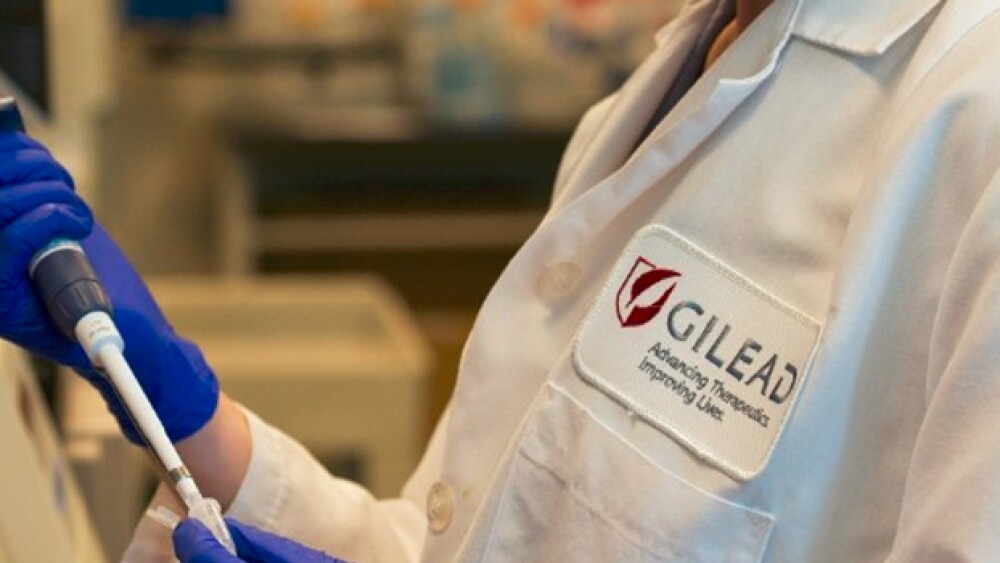Gilead continues to see serious revenue declines in its hepatitis C marketshare, a space it has dominated for several years.
Gilead continues to see serious revenue declines in its hepatitis C marketshare, a space it has dominated for several years, even as the company moves into immuno-oncology following the finalization of its acquisition of Kite Pharma earlier this month.
On Thursday, Gilead reported HCV revenue of $2.2 billion for the third quarter of 2017, more than $1 billion less than what it earned from its HCV franchise in the same quarter last year. Gilead said the decline was due to lower sales of its blockbuster treatments Harvoni and Sovaldi. Sales of the two drugs declined across all major markets, Gilead said. To compound matters, HCV revenues are likely to decline even more, particularly when AbbVie’s Mavyret is factored into the equation.
Mavyret was approved by the U.S. Food and Drug Administration in August. The drug will treat about 95 percent of all HCV patients in a period of about eight weeks – four weeks less than Gilead’s top drugs. Sales of Mavyret are pegged at about $1.3 billion by 2022.
Because Mavyret will further cut into Gilead’s market share, the company lowered its financial guidance from $9.5 billion to $9 billion. It was only last quarter that Gilead raised its forecast to 9.5 billion.
The news has spooked investors. Shares of Gilead are down nearly 5 percent this morning, trading at $74.05 as of 10:50 a.m.
Writing in Seeking Alpha, analyst Leonard Yaffe said the HCV market is expected to decline about 40 percent for 2017 and will decline more next year. Those drops are on top of a 60 percent decline in 2016, he noted.
“In a few years, Hepatitis C has gone from a significant growth category to a declining cash cow. This puts increasing dependence on Gilead’s impressive HIV franchise,” Yaffe said.
During a conference call with analysts and reporters, Gilead did not provide any HCV sales projections for the next quarter, according to reports. Evercore ISI analyst Umer Raffat told clients in a note that Gilead’s HCV sales can “essentially get cut in half (perhaps more) next year,” FiercePharma reported.
With the acquisition of Kite and its recently approved CAR-T treatment Yescarta, Gilead does have a new revenue stream, although that won’t really kick in for a couple of years. How much Yescarta will offset the HCV losses is not yet known.
Gilead is also looking at potential approval of the company’s HIV treatment that some analysts suggest could become a blockbuster. The U.S. Food and Drug Administration is expected to make a decision on the combination treatment of bictegravir and emtricitabine/tenofovir alafenamide on Feb. 12, 2018.
Gilead though could acquire additional pipeline power through acquisitions. Even though it forked out $11 billion for Kite, the company is still sitting on $41.4 billion in cash and cash equivalents, the company said in its quarterly report.





